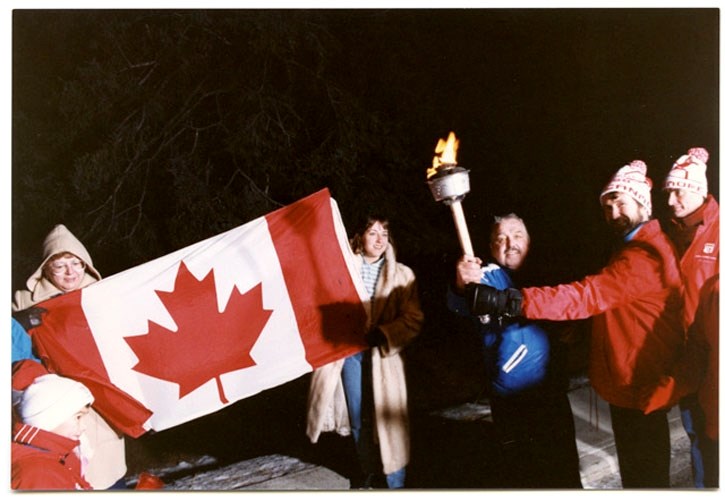CANMORE – Despite spending weeks getting public feedback about possibly co-hosting the 2026 Winter Olympics, one question was never asked – do you want to host the Games?
Instead, through a series of public open houses, an online survey, stakeholder workshops and advertising, the municipality asked the public about its concerns and priorities if the town hosts the Games.
The aim of the public engagement process was to help draft a set of principles to guide decision makers as they consider participating in a bid. Those principals have now been finalized and will be put before council to vote on in June.
Councillor Joanna McCallum, who opposes hosting the Games, commended the efforts of staff to engage the public, but questioned why residents haven’t been given the opportunity to express an opinion as to whether they want to co-host the Games or not.
“I am suspending my disbelief and moving forward with the process, but there should be an opportunity, and I’m not talking about a plebiscite necessarily, but there should be an opportunity for people to actually articulate yes or no,” said McCallum during a committee of the whole meeting on May 8.
“When are they going to have that opportunity?”
Robyn Dinnadge, the town’s communications manager, said the public will not have a formal opportunity to say yay or nay to hosting the Winter Games.
“As part of how we’re engaging with the public, and how we’ve been doing it over the last year is, we ask the question where we think the public has the most ability to influence the outcome,” said Dinnadge.
She said asking the public directly if they support the Games could set them up with false expectations.
“When we ask the public a simple yes or no and it’s not their decision to make outside a plebiscite, I believe we set up an expectation that they are being given an opportunity to make that decision, whereas all along this has been set out, and certainly things can change as we move forward, this is a council decision as to whether or not to participate in a bid.”
That being said, she didn’t completely shut the door on asking the public for its direction, but cautioned it would need to be done in a way that ensured results were statistically valid, such as a plebiscite.
“If council would like a clear question put to the public, my recommendation would be that it must be done in a way that ensures that it is statistically valid so that you can then use that information and make your decision knowing that the results you’ve got represent the whole community.”
McCallum disagreed with Dinnadge’s assertion that a plebiscite or other statistically valid process would have to be done for council to make an informed decision.
“I understand the perspective you’re coming from, but every time we have a public hearing I would say that the public hearing, the people that participate, it’s not statistically valid participation, but it’s an opportunity for the public to come forward and have their say and we haven’t given the public the opportunity to come forward to have their say,” said McCallum.
The discussion around a plebiscite was first brought up when the province announced in March that Calgary would have to hold a public vote to qualify for provincial funding if it choses to move forward with a bid for the Winter Games. The federal and provincial governments have each set aside about $10 million for the city of Calgary to create an Olympic bid corporation. The plebesite would be non-binding.
Later in the meeting, McCallum asked staff if they had heard from the province about what the requirements would be to hold a plebiscite in Canmore.
“To be clear, the province has not indicated that they have any expectation that Canmore will hold a plebiscite,” said Lisa de Soto, the town’s chief administrative officer who represents Canmore with the BidCo group.
In the event Canmore does hold a non-binding plebiscite, de Soto said it would take approximately six months to organize, similar to a municipal election.
“We have not heard from the province at all regarding Canmore’s participation.”
Discussion about whether the municipality should give residents the opportunity to say yay or nay to the Games overshadowed earlier discussions around the nine guiding principals that staff put together to help guide council as it decides whether Canmore should participate in a bid.
The top three principals include being open and transparent, achieving lasting legacies to help resolve challenges facing the community, such as affordability and accessibility, and securing ongoing tools for municipal funding in order to have a minimal impact on the taxpayer.
Council will vote on the nine recommended principals later this month. For the full list visit www.canmore.ca/olympics.




